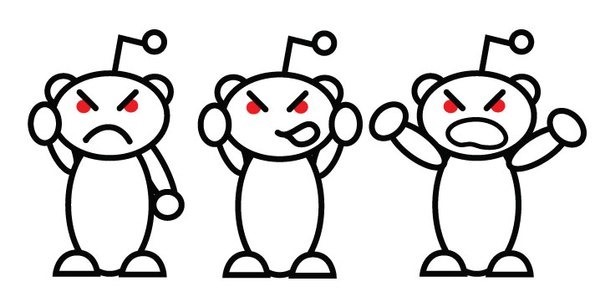Awww, Reddit is in flames cause somebody over there got fired. The whole shabang is here.
If you remember 2010, same thing happened to Digg. It was a spark of no apparent importance (the administration censored some dumb code that was supposedly permit CD ripping, users revolted, trashed the site and moved on to Reddit), but the site went down in flames.
The reason for the drama is pretty simple and has nothing to do with a employee being fired. Users were just looking for a reason to express their rage with a 500 million dollars valuation of the site they build and have no control over. If you ever managed a community bigger than 100 people, you have seen this before. If you are active on any forum for more than 5 years, you have seen this before. You also saw this on Digg, HuffPo, Flickr and others.
It happens every time a generations is growing tired. The generation that met on Digg and moved to Reddit is getting older and tired and wants to retire with a bang.

I think it’s an interesting perspective. Do you see this happening to other places like Facebook. or would the monkeys there for some reason be less prone to revolting?
Facebook is supposedly also valued at a shitton of money, even if one doesn’t see their market cap as reflective of their actual value, which may well be negative. And I don’t see why users wouldn’t just take the figure and feel entitled to a piece of the cake, or ‘swindled’ by a company that takes their supposed content and gives nothing but ads in return.
Users also create (which, these days usually means ‘share from somewhere else, without attribution and adding their own comments’) content on Facebook, and are certainly capable of falsely believing they are thus creating value, instead of merely enabling a scam, for which they should be compensated. But for some reason, even after many years, that doesn’t make them leave or revolt.
Can the deaths of MySpace, LiveJournal, etc be explained by a similar phenomenon, in your view? I find this interesting, but I’d really like to have a more generalizable model.